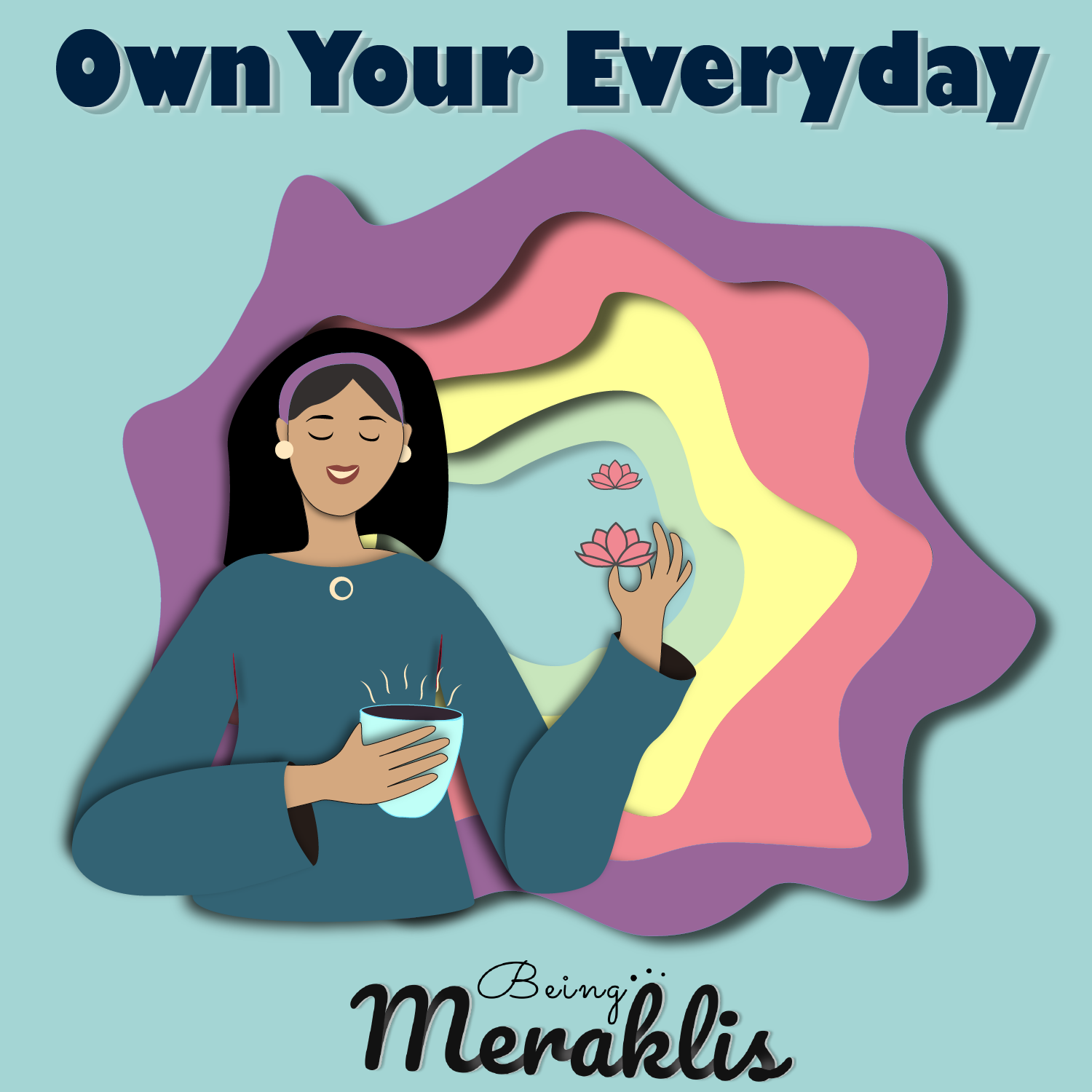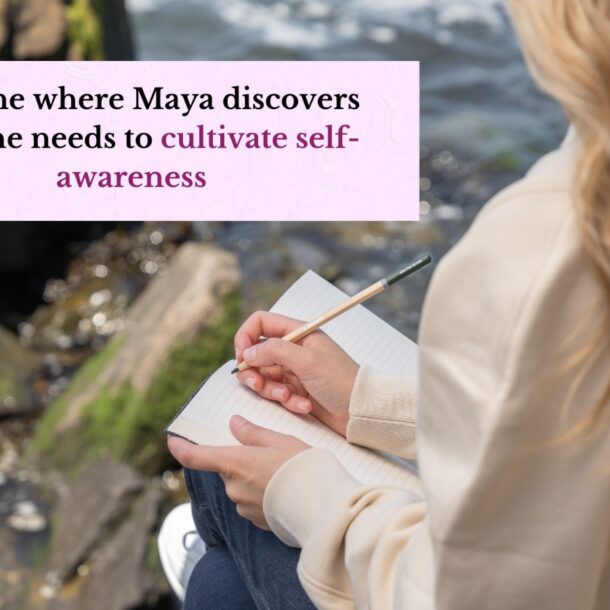Ep 101 – The importance of the middle path

For as long as I can remember I’ve been a workaholic so much so that when there’s no work I’d feel restless and uneasy. There was a time when it would be discomforting for me physically when I had nothing to do. At the same time I could travel without network for weeks and do digital detoxes without once looking at my inbox. The same would be when I’d eat – I can fast and stay away from eating for long periods but when I give in and let go I cannot stop myself from binging. I can be highly extrovert and social and completely silent as a monk at other times. For many years I swayed from one extreme to another, until I realised this was unsustainable… Is that you too? Always in excess and never balanced? If yes, then this episode is for you.
Hello and welcome to a new episode of the Own Your Everyday series. I’m your host and self-awareness coach Shwetha Sivaraman. In this episode, we will explore the importance of the middle path and ways we can find more balance in our day to day lives.
If you’ve subscribed to our weekly emailers you’d have read about the many life lessons I learned when I experimented with pottery for the first time. One of the things that the instructor told me half amused is that in pottery you don’t apply too much pressure. He saw me trying very hard to grip the clay and mould it to shape and told me what’s needed was a gentle touch. Right next to me though my sister who was also on the potter’s wheel was receiving a different instruction – to add some more pressure because she cannot give the clay a shape without it.
Too much and it breaks, too little and there’s no shape – A valuable lesson in pottery was applicable in life too. When we do anything in excess – overwork, overeat, overdo – we break ourselves – we fall ill, burnout mentally, and feel exhausted. And, if we laze around and let time pass by we cannot proactively create or build anything we desire.
This is not a new age lesson, in the Bhagavad Gita, Lord krishna says this in a verse in chapter 6
युक्ताहारविहारस्य युक्तचेष्टस्य कर्मसु |
युक्तस्वप्नावबोधस्य योगो भवति दु:खहा || 17||
The verse states that those who are balanced in their ahara – eating, vihara – recreation, yukta chestasya karmasu – balanced in their work, svapnavabodhasya – sleep and wakefulness – They become the slayer of sorrows.
The same was repeated many millennia later by Gautama Buddha when he urged individuals to walk the middle path. A path that’s not characterised by complete abstinence or overindulengence. It is said that Buddha on his journey of enlightenment had a phase where he gave up eating and drinking to meditate without interruptions. However, within a few days his mind was week and dizzy making meditation next to impossible. At that time he heard some women in the village where he was practicing singining a song. The lyrics losely translate to “Tighten the strings of the *tānpurā*. But do not tighten them so much that the strings break.” He immediately realised that he should practice and strengthen his body but not to an extent that the body is destroyed.
In our lives today, excess is the name of the game. Technology has unlocked newer levels of sensory indulgence for us with 10 min deliveries offering the world at our doorstep. Work has seeped in to every moment of our lives through calls at unearthly hours, 24*7 teams notifications, and whatsapp pings. To live our best lives, we need to find a balance between work and play, action and rest, doing and being.
How do we really find this balance in our day to day lives:
1. Let go of the need to control – Often times we cling to certain activities because we feel we can control it by clinging to it. When we let go of the need to control every aspect of our lives, we can allow ourselves to flow with the course.
2. Know there’s a limit to what you can accomplish – You might want to travel the world, become the ceo of a company, and earn billions of dollars. As ambitious overachievers, our desires have no limits. But we are constrained by the amount of time we have in this life. The sooner we accept we cannot have it all, the faster we realise the importance of slowing down and pursuing only what’s most important.
3. This brings us to another key aspect to finding our balance – Knowing our priorities. In a world where we cannot have it all, its very important for us to know what matters most and give that our all. Make sure you’re very clear what your top 2-3 priorities are in life, choose how you’d like to invest your time wisely in those priorities and say no to everything else.
4. Come back to the present moment – When we are fully present to the here and now, balance is ours to have and wield. When we are fully present, we can make deliberate choices by listening to our bodies and our inner wisdom to do exactly what’s needed for us at that very moment.
5. Schedule periods of rest – We believe we can rest when the time comes, when we retire or have created enough wealth. But the truth is that we never reach that day. Rather the longer we keep hustling without resting we lose our edge, productivity, and efficiency. All things we need to rely on to get where we want to go. If you’re too busy for rest, start small by taking maybe 15 mins of rest in a day. You’ll start to notice a difference. Take small steps, balance today and the next day and the next in the best manner possible by proactively scheduling periods of rest, recreation, and rejuvenation to ensure you come back to work feeling rested.
So here’s your own your everyday tip for this week – Walking the middle path offers stability to go long in life. Find your middle ground by letting go of the need to control, being realistic in your expectations from yourself, being clear of your priorities, and scheduling times of rest to recoup and recover. Lastly, consciously stop churning the past or worrying about the future and bring yourself back to the present moment. The path is unfolding only in the present moment and we cannot walk the path well without being fully present.
Until we meet again, this is Shwetha signing off. Hoping you have a fabulous week ahead.


